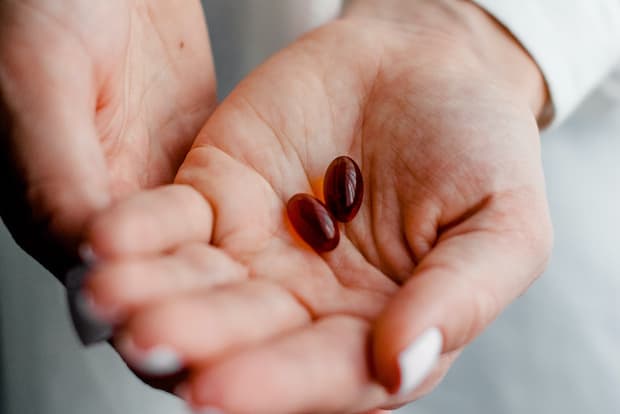Table of Contents
I. Common Treatments for Thyroid Problems
IV. The Effectiveness of Thyroid Medications
Common Treatments for Thyroid Problems
Your thyroid is a small, butterfly-shaped gland at the base of your neck. Your thyroid is part of your endocrine system, which means that it is one of your organs that produces, stores, and releases hormones into your bloodstream. Mainly, your thyroid is responsible for producing metabolism-regulating hormones, but your thyroid also helps regulate your heart rate, breathing, body temperature, and menstrual cycles. The thyroid cartilage is usually noticeable in men and referred to as an Adam’s apple. When your thyroid is working normally, your body is able to use energy effectively. [1]
There are two main types of thyroid disease: Hypothyroidism (underactive) and hyperthyroidism (overactive). If you are diagnosed with hypothyroidism, it means that your thyroid is not producing enough thyroid hormones. [2] The opposite is true for hyperthyroidism, which is when your thyroid is overproducing thyroid hormones. [3] Your treatment plan will depend on your diagnosis. Common treatments for an underactive thyroid are Synthroid (levothyroxine) and desiccated thyroid. Tapazole (methimazole) is commonly used to treat an overactive thyroid. Read on to learn more about different treatments and medications for thyroid problems. Medications for an underactive thyroid typically involve synthetic thyroid hormones like levothyroxine. With this type of medication, it may take several weeks before you feel relief from your symptoms. Although treating an underactive thyroid this way takes time, you should see symptoms begin to subside within a month. If your dosage level is correct, taking levothyroxine should eliminate almost every symptom after six weeks. If you still do not feel better after six weeks, you may need to work with your doctor to adjust your medication levels. During the first one or two months of synthetic thyroid hormone treatment, you may experience temporary hair loss. Other side effects of levothyroxine may include chest pain, abnormal heartbeat, fever, or diarrhea. Some side effects are merely signs that your body is adjusting to the medication. Other side effects can be serious. Always talk to your doctor about how you are responding to your treatment plan and if you notice any unusual side effects. [4] Hypothyroidism can also be treated with desiccated thyroid extract. Desiccated thyroid comes from dried animal thyroid gland tissue, and it contains a mixture of thyroxine (T4) and triiodothyronine (T3), which are the two major hormones that the thyroid gland produces. [5] According to one review of popular patient forums, patients found desiccated thyroid superior to synthetic hormone medications. [6] As mentioned above, doctors usually prescribe synthetic levothyroxine for thyroid hormone replacement therapy. In a 12-week study of 70 patients, researchers found both levothyroxine and desiccated thyroid extract to yield the same outcomes; both treatment methods normalized the abnormal thyroid blood tests. However, some patients claim that levothyroxine does not completely ease their symptoms and have reported better results after switching to desiccated thyroid extract. [7] If you have an overactive thyroid, your doctor will likely prescribe methimazole medication to alleviate your symptoms. This type of drug works by causing your thyroid gland to produce less thyroid hormone. [8] If your hyperthyroidism is caused by Graves’ disease, methimazole has been shown to be safe as a long-term medication. Previously, if your hyperthyroidism was caused by a toxic nodular goiter (overactive thyroid nodule), methimazole was only used in the short term to prepare you for surgery or radioactive iodine therapy. Studies now suggest that methimazole is a safe and effective long-term treatment for normalizing the thyroid function for toxic nodular goiter patients as well. [9] Whether you have hypothyroidism or hyperthyroidism, the effectiveness of your medication will depend on factors like your age, weight, and ability to consistently take the medication as directed. Increasing your dosage without telling your doctor will not improve your condition faster, only increase your risk of side effects. [8] Along with thyroid medications like Synthroid (levothyroxine), desiccated thyroid, and Tapazole (methimazole), taking certain supplements can improve your condition and ease some of your symptoms. Hypothyroidism can lower your body’s vitamin B-12 levels, so eating foods high in vitamin B-12 or taking vitamin B-12 supplements may help. A gluten-free diet is not a research-backed treatment, but hypothyroidism patients have reported that they feel better after removing gluten from their diet. There are more advantages than disadvantages to supplementing your original treatment plan with a healthier diet and lifestyle, but you should always inform your doctor about the changes you make. For some, thyroid medications are not necessary, and a natural thyroid treatment plan is sufficient. For others, synthetic thyroid hormones or thyroid hormone extract may be the most effective treatment plan to take. If you are experiencing thyroid problems, ask your doctor about the treatment plan most suited for you. [10] The content in this article is intended for informational purposes only. This website does not provide medical advice. In all circumstances, you should always seek the advice of your physician and/or other qualified health professionals(s) for drug, medical condition, or treatment advice. The content provided on this website is not a substitute for professional medical advice, diagnosis, or treatment.
Hypothyroidism

Hyperthyroidism
The Effectiveness of Thyroid Medications

